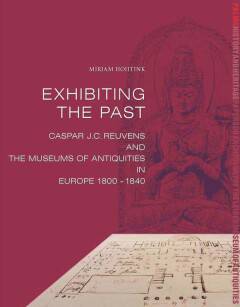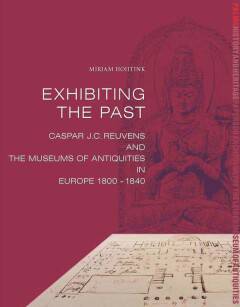
- Afhalen na 1 uur in een winkel met voorraad
- Gratis thuislevering in België vanaf € 30
- Ruim aanbod met 7 miljoen producten
- Afhalen na 1 uur in een winkel met voorraad
- Gratis thuislevering in België vanaf € 30
- Ruim aanbod met 7 miljoen producten
Zoeken
Exhibiting the Past
Caspar Reuvens and the Museums of Antiquities in Europe, 1800-1840
Mirjam Hoijtink
Paperback | Engels
€ 79,50
+ 159 punten
Omschrijving
In the first decades of the 19th century, the exhibition of antiquity in museums reflected a universal history of civilization, in which the idea of cross-cultural influences dominated. Hindu-buddhist civilization of 13th century Java was easily connected to that of classical Greece, and Indian Hindu-depictions were playfully related to those of Egyptian Pharaonic time. This book shows how antiquity, during and just after the Napoleonic era formed a statement in a changing world at the dawn of nationalism. The main character is the first professor of Archaeology Caspar Reuvens, director of the Museum of Antiquity in Leiden, the Netherlands (1818-1835). It emphasis on his forming years in Paris and Germany, his many travels to London, and his plans for a journey to Rome. Beside, it sheds new light on the radically changing canon of antique sculpture in a nervous Europe, that soon would be falling apart in nation states.
Specificaties
Betrokkenen
- Auteur(s):
- Vertaler(s):
- Uitgeverij:
Inhoud
- Aantal bladzijden:
- 200
- Taal:
- Engels
Eigenschappen
- Productcode (EAN):
- 9782503541525
- Verschijningsdatum:
- 27/03/2012
- Uitvoering:
- Paperback
- Formaat:
- Trade paperback (VS)
- Afmetingen:
- 221 mm x 277 mm
- Gewicht:
- 839 g

Alleen bij Standaard Boekhandel
+ 159 punten op je klantenkaart van Standaard Boekhandel
Beoordelingen
We publiceren alleen reviews die voldoen aan de voorwaarden voor reviews. Bekijk onze voorwaarden voor reviews.








